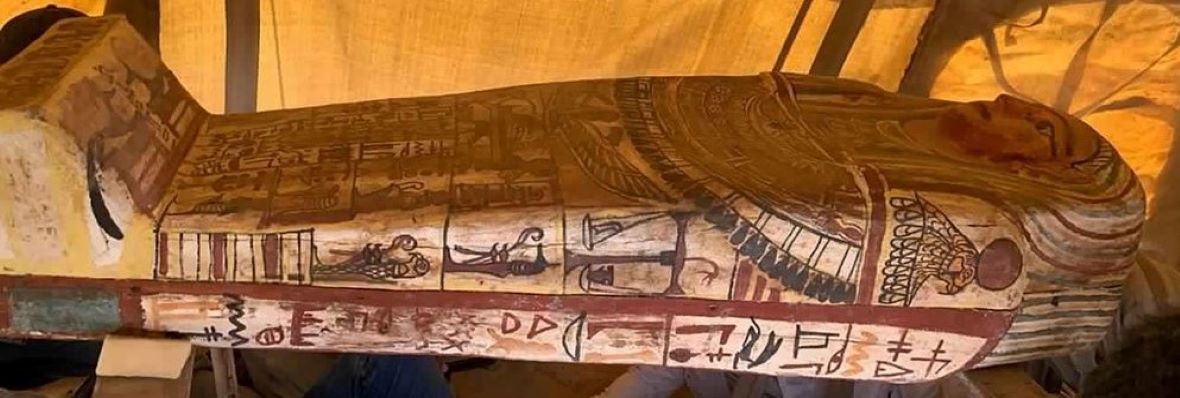Egyptian archaeologists have unearthed more than two dozen ancient coffins in a vast necropolis south of Cairo – a find that promises to help boost tourism in the Middle Eastern nation known for its pyramids and antiquities, such as King Tut’s mummy.
The newly found sarcophagi have remained unopened since they were buried more than 2,500 years ago near the famed Step Pyramid of Djoser in Saqqara.
A spokeswoman for Egypt’s Ministry of Tourism and Antiquities said 13 coffins were found earlier this month in a recently found, 11 m.-deep well, and that 14 more were found last week in another well.
Footage shared by the ministry showed colourful sarcophagi decorated with ancient Egyptian hieroglyphics, as well as other artifacts found in the two wells.
The Saqqara plateau was home to least 11 pyramids, including the Step Pyramid, along with hundreds of tombs of ancient officials, ranging from the 1st Dynasty (2920 B.C.-2770 B.C.) to the Coptic period (395-642).
Archaeologists were still working to determine the origins of the coffins and further excavations are underway in the necropolis with more coffins were expected to be found. Additional details and “secrets” are expected to be announced next month.
In recent years, Egypt has heavily promoted new archaeological finds in an effort to revive its key tourism sector by attracting more tourists to the country.
Last year, archaeologists found a cache at Saqqara that included hundreds of mummified animals, birds and crocodiles, as well as two mummified lion cubs.
The Saqqara plateau is part of the necropolis of Egypt’s ancient city of Memphis, and also includes Abu Sir, Dahshur and Abu Ruwaysh and the famed Giza Pyramids. The ruins of Memphis were designated a UNESCO World Heritage site in 1970s.
In October 2019, archaeologists unearthed 30 ancient wooden coffins with inscriptions and paintings in the southern city of Luxor, which were moved to be showcased at the Grand Egyptian Museum, which Egypt is building near the Giza Pyramids.
Egypt’s key tourism sector has suffered from the years of political turmoil and violence following the 2011 uprising that toppled autocrat Hosni Mubarak, and the sector, which was showing a resurgence this year, was dealt a further blow by the global coronavirus pandemic.


